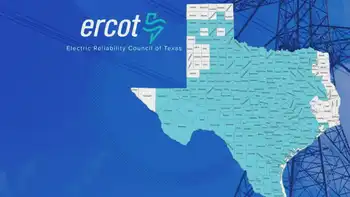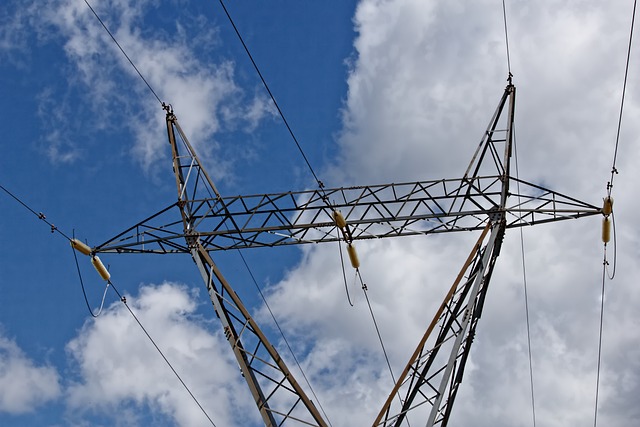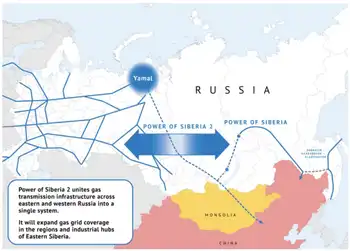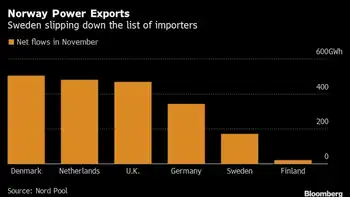ERCOT Ancillary Services Clawback and VOLL Pricing summarize PUCT and IMM actions on load shed, real-time pricing adders, clawbacks, and settlement corrections after the 2021 winter storm in the Texas power grid market.
Key Points
Policies addressing clawbacks for unprovided AS and correcting VOLL-based price adders after load shed ended in ERCOT.
✅ PUCT ordered clawbacks for ancillary services not delivered.
✅ IMM urged price correction after firm load shed ceased.
✅ ERCOT's VOLL adder raised costs by $16B during 32 hours.
Potomac Economics, the Independent Market Monitor (IMM) for the Electric Reliability Council of Texas (ERCOT), filed a report with the Public Utility Commission of Texas (PUCT) that certain payments were made by ERCOT for Ancillary Services (AS) that were not provided, even as ERCOT later issued a winter reliability RFP to procure capacity during subsequent seasons.
According to the IMM (emphasis added):
There were a number of instances during the operating days outlined above in which AS was not provided in real time because of forced outages or derations. For market participants that are not able to meet their AS responsibility, typically the ERCOT operator marks the short amount in the software. This causes the AS responsibility to be effectively removed and the day-ahead AS payment to be clawed back in settlement. However, the ERCOT operators did not complete this task during the winter event, echoing issues like the Ontario IESO phantom demand that cost customers millions, and therefore the "failure to provide" settlements were not invoked in real time.
Removing the operator intervention step and automating the "failure to provide" settlement was contemplated in NPRR947: Clarification to Ancillary Service Supply Responsibility Definition and Improvements to Determining and Charging for Ancillary Service Failed Quantities; however, the NPRR was withdrawn in August 2020 amid ongoing market reform discussions because of the system cost, some complexities related to AS trades, and the implementation of real-time co-optimization.
Invoking the "failure to provide" settlement for all AS that market participants failed to provide during the operating days outlined above will produce market outcomes and settlements consistent with underlying market principles. In this case, the principle is that market participants should not be paid for services that they do not provide, even as a separate ruling found power plants exempt from providing electricity in emergencies under Texas law, underscoring the distinction between obligations and settlements. Whether ERCOT marked the short amount in real-time or not should not affect the settlement of these ancillary services.
On March 3, 2021, the PUCT ordered (a related press release is here) that:
ERCOT shall claw back all payments for ancillary service that were made to an entity that did not provide its required ancillary service during real time on ERCOT operating days starting February 14, 2021 and ending on February 19,2021.
On March 4, 2021, the IMM filed another report and recommended that:
the [PUCT] direct ERCOT to correct the real-time prices from 0:00 February 18,2021, to 09:00 February 19, 2021, to remove the inappropriate pricing intervention that occurred during that time period.
The IMM approvingly noted the PUCT's February 15, 2021 order, which mandated that real-time energy prices reflect firm load shed by setting prices at the value of lost load (VOLL).1
According to the IMM (emphasis added):
This is essential in an energy-only market, like ERCOT's, where the Texas power grid faces recurring crisis risks, because it provides efficient economic signals to increase the electric generation needed to restore the load and service it reliably over the long term.
Conversely, it is equally important that prices not reflect VOLL when the system is not in shortage and load is being served, and experiences in capacity markets show auction payouts can fall sharply under different conditions. The Commission recognized this principle in its Order, expressly stating it is only ERCOT's out-of-market shedding firm load that is required to be reflected in prices. Unfortunately, ERCOT exceeded the mandate of the Commission by continuing to set process at VOLL long after it ceased the firm load shed.
ERCOT recalled the last of the firm load shed instructions at 23:55 on February 17, 2021. Therefore, in order to comply with the Commission Order, the pricing intervention that raised prices to VOLL should have ended immediately at that time. However, ERCOT continued to hold prices at VOLL by inflating the Real-Time On-Line Reliability Deployment Price Adder for an additional 32 hours through the morning of February 19. This decision resulted in $16 billion in additional costs to ERCOT's market, prompting legislative bailout proposals in Austin, of which roughly $1.5 billion was uplifted to load-serving entities to provide make-whole payments to generators for energy that was not needed or produced.
However, at its March 5, 2021, open meeting (related discussion begins around minute 20), although the PUCT acknowledged the "good points" raised by the IMM, the PUCT was not willing to retrospectively adjust its real-time pricing for this period out of concerns that some related transactions (ICE futures and others) may have already settled and for unintended consequences of such retroactive adjustments.
Related News












